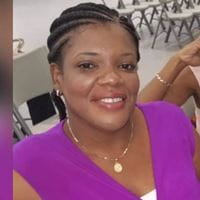
Odette Bailey, Bloodless Medicine Feature
How Bloodless Medicine Services at UPMC supported a woman’s faith — and recovery.
For as long as she could remember, Jamaica native Odette Bailey experienced excruciating pelvic pain. As she approached her mid-40s, the pain was growing stronger and more extensive. “I didn’t know what was wrong, but I knew I needed help,” she says.
While visiting Pittsburgh last fall, a close friend urged Odette to go to the Free Health Center in Pittsburgh’s Hill District for a medical exam. The center is part of the Neighborhood Resilience Project; a faith-based initiative of the Orthodox Christian Church.
“Two lovely doctors there told me I had fibroids that would require surgical intervention,” says Odette, then 44. “The center connected me to specialists at UPMC Magee-Womens Hospital for more tests and evaluation.”
An ultrasound at UPMC Magee confirmed the diagnosis. “I had very large fibroids and endometriosis,” says Odette. “I needed a hysterectomy and it was vital that it happen soon.”
Why Choose Bloodless Medicine?
As planning for her surgery progressed, Bailey shared an important concern with her doctors at Magee. As one of Jehovah’s Witnesses, she rejects the use of blood transfusions or blood products.
“When I told the pre-op staff, everyone was incredibly respectful and caring, says Odette. “I was never hospitalized before, so I must admit I was scared. I also have a blood phobia. They connected me right away with Deborah Tatro for help with bloodless medicine.”
Deborah is a UPMC bloodless medicine advocate. “Bloodless medicine has been offered at UPMC since 2009 and we are leaders in this field. Services started at Magee and UPMC Passavant and are now offered to our patients and their doctors at all UPMC facilities,” says Deborah. “Our goal is to ensure that the wishes of all our patients are respected with dignity and that the quality of their care is never compromised.”
That goal, says Odette, became a lived experience as she prepared for her surgery. “Deborah reassured and comforted me throughout the process,” she says.
In most surgeries, blood lost during an operation is replaced with blood given by donors. UPMC’s bloodless medicine services are part of the UPMC Wolff Center’s comprehensive blood management program. It brings together a multidisciplinary group of doctors, nurses, and health care professionals with expertise in blood management techniques. Their goal is to eliminate and/or minimize the need for transfusion or blood products. They use advanced surgical methods to preserve a patient’s own blood and applies science-based techniques and medicine to help minimize blood loss.
Like Bailey, many people cannot or will not accept transfusions for religious or personal reasons. However, bloodless medicine also is becoming a preferred treatment for many patients because of the beneficial outcomes it offers. These can include fewer post-operative complications, reduced risk of infection, and shorter hospital stays. Major operations in virtually every medical specialty — from heart surgery to hip replacements — can be done using bloodless medicine techniques.
Honoring Convictions, Planning for Success
"As Bailey’s patient advocate, I helped to document and coordinate her requests with her surgical team,” says Deborah. “I also collaborated with a bloodless medicine liaison from her congregation to ensure her wishes for a safe, transfusion-free surgery were honored.”
There is a potential risk for blood loss during any major surgery. “I understood what could happen during my operation thanks to all the support I received at UPMC,” says Odette. “Even though I never had surgery before, I had great peace of mind. I was confident in my great doctors and the bloodless medicine program at UPMC.”
Most adults have about five liters of blood in their body. Odette lost 1.2 liters of blood during her 6.5-hour long operation in February 2021. “Odette had consented to have an autotransfusion (also called cell salvaging), if needed,” says Deborah. “Through advance planning, her lost blood was able to be safely collected, cleaned, and returned to her body. It ended up being a critical element to the success of her surgery.”
“It took a team of people to care for me at Magee, and I am so blessed and grateful,” says Bailey. She especially credits Jennifer de Groot, MD, for her support and guidance. She also is thankful for her surgical team led by Kathleen McIntyre-Seltman, MD, with assistance from resident surgeons Taylor Rives, MD, and Abby Stork, MD. “I am so appreciative of UPMC for helping me stay faithful to my beliefs.”
Contact Us
To learn more about blood management or the Bloodless Medicine Program at UPMC, call 1-877-674-7111.

















